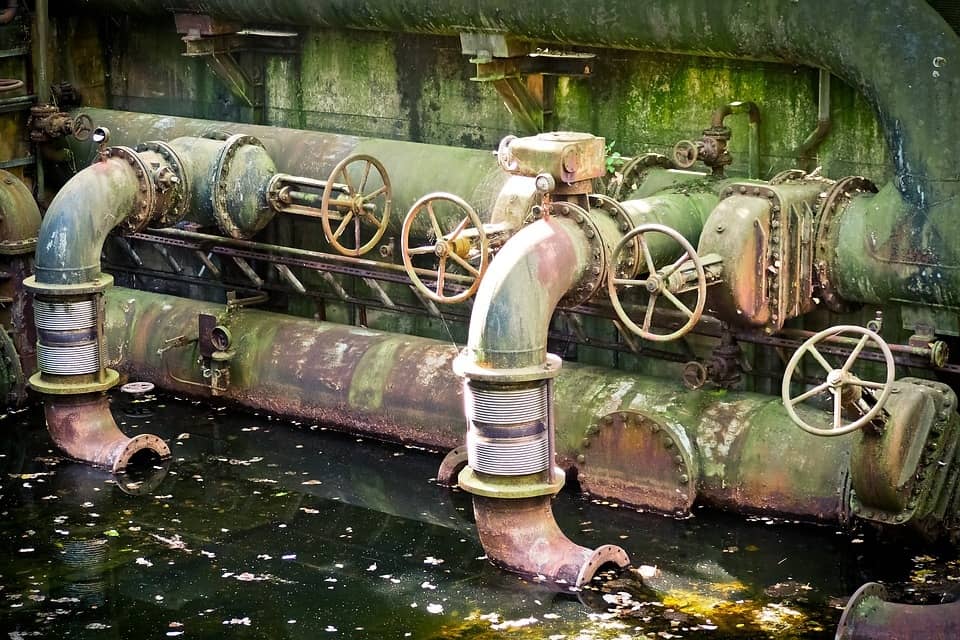Versuchen GOLD - Frei
Heavy Metals Toxicity: A Rising Concern In India
Scientific India
|May - June 2019
India is the developing country and due to industrialization and modernization, is leaving powerful impact at the global level on technical ground.
-

But everything comes with pros and cons. Development at the sake of environment is not justifiable and is costing the threat to human as well as animal life, resulting in accumulation of heavy toxic chemicals, metals in the food chain as well as the water sources and air. It is discussed globally that environmental pollution in developing countries is mostly because of negative effect of technological developments like rapid urbanization and industrialization, with poor-planning in waste disposal and management. Burning of fossil fuel, mining and metallurgy, industries and transport sectors are contributing toxic heavy metals into the environment, which persist for a considerably longer period and are resulting in bioaccumulation in crops. Heavy metal toxicity is one of the major current environmental health problem and is dangerous because of bio accumulation through food chain. Heavy metal content in the vegetation around urban industrial areas has been found to be higher as compared to normal ones, indicating relationship between industrialization and environmental deterioration. Food of plant origin as well as animal origin like milk, meat has bio-accumulated these toxic metals and is the challenge to public health safety. Soil naturally has various heavy metals like Cr, Cu, Cd, Co and Pb etc but indiscriminate use of chemical fertilizers, insecticides, contaminated ground water is main reason for bio magnification of heavy metals in soil. Various heavy metals like Co, Cr and Cu are essential for plant and animal metabolism, but not at levels above maximum permissible limits (MPL). Above MPL, they disrupts the normal functioning of organisms. Metals like Cd, Hg and Pb are considered to be highly toxic and carcinogenic for humans and animals. Heavy metals of industrial biowaste contaminate drinking water, food and air. Heavy metals level above MPL effect hormone system and growth of different body tissues.
Diese Geschichte stammt aus der May - June 2019-Ausgabe von Scientific India.
Abonnieren Sie Magzter GOLD, um auf Tausende kuratierter Premium-Geschichten und über 9.000 Zeitschriften und Zeitungen zuzugreifen.
Sie sind bereits Abonnent? Anmelden
WEITERE GESCHICHTEN VON Scientific India
Scientific India
Japanese physicists were the first to measure the most tolerant entanglement state, the W state
There are many unusual things that happen in the world of quantum physics.
3 mins
September - October 2025

Scientific India
The Fifth Force: Could It Unlock the Secret of Dark Matter?
What if the universe is powered by a force we've never seen before? For centuries, science has explained nature with four fundamental forces.
3 mins
September - October 2025

Scientific India
A flu test you can chew
As flu season nears in the northern hemisphere, scientists are exploring a surprising new way to detect infection: through taste.
1 mins
September - October 2025

Scientific India
Lab-Grown Kidney Brings Artificial Organ Dream Closer to Reality
In a major leap toward bioengineered organ replacement, scientists have successfully grown human kidney 'assembloids' in the laboratory that mimic key structural and functional features of natural kidneys.
1 min
September - October 2025

Scientific India
Your pumpkin might be hiding a toxic secret
Pumpkins, squash, zucchini, and other members of the gourd family have a surprising trait: they can take up pollutants from the soil and store them in their edible parts.
1 mins
September - October 2025

Scientific India
2025 Nobel Prize in Physics Reveals Quantum Secrets in Superconducting Circuits
The 2025 Nobel Prize in Physics has been awarded to John Clarke, Michel H. Devoret, and John M. Martinis for their pioneering experiments that brought quantum mechanics from the invisible atomic world to the macroscopic scale a system large enough to hold in your hand.
1 mins
September - October 2025

Scientific India
Genomic Evidence Redefines the Evolutionary Age of Mosquitoes
A new genetic analysis has shaken up what we thought we knew about one of humanity's most notorious pests the mosquito.
1 min
September - October 2025

Scientific India
Nobel Prize in Chemistry 2025: Building Molecular Architectures with Room to Breathe
In a scientific breakthrough that bridges molecular design with planetary-scale problems, the 2025 Nobel Prize in Chemistry has been awarded to Susumu Kitagawa, Richard Robson, and Omar Yaghi.
1 mins
September - October 2025

Scientific India
Guardians of Immunity: Nobel Prize 2025 Honors Discoveries that Keep the Immune System in Check
The 2025 Nobel Prize in Physiology or Medicine has been awarded to Mary E. Brunkow, Fred Ramsdell, and Shimon Sakaguchi for their groundbreaking discoveries in the field of peripheral immune tolerance a crucial mechanism that prevents the body's immune system from turning against itself.
1 mins
September - October 2025

Scientific India
'Is cold nuclear fusion feasible?
In early May 1989, two chemists from the University of Utah, Pons and Fleischmann, arrived in Washington, U.S.A. The aim is to present their findings to members of the US Congress.
3 mins
September - October 2025
Translate
Change font size
